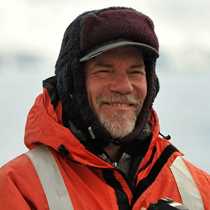Sousse, Tunisia
Homer called this the “wine-dark sea”, but today the Mediterranean is deep brilliant blue, the color of lapis lazuli and the zenith. We are crossing the Gulf of Sirte, following the route of Phoenicians, Greeks, and Romans from Pentapolis to Tripolitania, over the blue sea and under the cloudless blue September sky that were well known to those sailors long ago.
Though the sky and sea appear unaltered, the Mediterranean has suffered many changes as the peoples and nations around her shores have grown into the present day. Mare nostrum, “our sea”, the Romans called it, and so it has been for many empires, before and since. It has been our sea to be taken from, a source of food and tools and jewels for thousands of years; our sea to wash away all of our refuse, our trash and our poisons.
But this kind of give and take can only go so far. By the mid-Twentieth century the Mediterranean was nearly barren and terribly polluted. Jacques Cousteau famously said that he wouldn’t put his toe in it, much less dive in it. Italian oceanographers of the 1960’s were mostly MD’s rather than PhD’s because the important issues concerning the sea were questions of public health, not marine biology.
Since that time things have begun to change for the better, at least in some ways. Improved environmental policies in many of the nations surrounding the Mediterranean, and greater cooperation between nations, have reduced pollution dramatically. And in response, many of the algal and marine invertebrate communities are very healthy today, filled with lovely cup corals and vibrantly beautiful nudibranchs. Nonetheless, many challenges yet remain, particularly issues of over-fishing and introduced species, problems that will require even great resolve and collaboration between governments, NGOs and industry in the future.
But now the ship has stopped and we are swimming and relaxing blissfully in the clean clear water. Perhaps a few of us spare a thought or two for the strange and beautiful sea creatures below us and for the future of this ancient sea. But mostly we are simply enjoying the Mediterranean, as so many people have done for so long.
Homer called this the “wine-dark sea”, but today the Mediterranean is deep brilliant blue, the color of lapis lazuli and the zenith. We are crossing the Gulf of Sirte, following the route of Phoenicians, Greeks, and Romans from Pentapolis to Tripolitania, over the blue sea and under the cloudless blue September sky that were well known to those sailors long ago.
Though the sky and sea appear unaltered, the Mediterranean has suffered many changes as the peoples and nations around her shores have grown into the present day. Mare nostrum, “our sea”, the Romans called it, and so it has been for many empires, before and since. It has been our sea to be taken from, a source of food and tools and jewels for thousands of years; our sea to wash away all of our refuse, our trash and our poisons.
But this kind of give and take can only go so far. By the mid-Twentieth century the Mediterranean was nearly barren and terribly polluted. Jacques Cousteau famously said that he wouldn’t put his toe in it, much less dive in it. Italian oceanographers of the 1960’s were mostly MD’s rather than PhD’s because the important issues concerning the sea were questions of public health, not marine biology.
Since that time things have begun to change for the better, at least in some ways. Improved environmental policies in many of the nations surrounding the Mediterranean, and greater cooperation between nations, have reduced pollution dramatically. And in response, many of the algal and marine invertebrate communities are very healthy today, filled with lovely cup corals and vibrantly beautiful nudibranchs. Nonetheless, many challenges yet remain, particularly issues of over-fishing and introduced species, problems that will require even great resolve and collaboration between governments, NGOs and industry in the future.
But now the ship has stopped and we are swimming and relaxing blissfully in the clean clear water. Perhaps a few of us spare a thought or two for the strange and beautiful sea creatures below us and for the future of this ancient sea. But mostly we are simply enjoying the Mediterranean, as so many people have done for so long.




